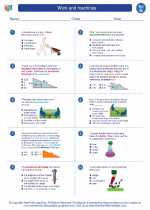Emigration
Emigration refers to the process of individuals or groups of people leaving their native country to settle in another. This movement is often driven by various factors such as seeking better economic opportunities, escaping political turmoil, or pursuing higher education and quality of life. Emigration can have significant social, economic, and environmental impacts on both the country of origin and the destination country.
Factors Driving Emigration
- Economic Opportunities: Individuals may emigrate in search of better job prospects, higher wages, and improved living standards.
- Political Instability: Political unrest, persecution, or lack of freedom may drive people to seek refuge in other countries.
- Education and Quality of Life: Some individuals and families may emigrate to access better educational opportunities and healthcare services.
- Environmental Reasons: Environmental factors such as natural disasters, climate change, and resource scarcity can also lead to emigration.
Social and Economic Impacts
Emigration can have both positive and negative impacts on the country of origin and the destination country. In the country of origin, emigration may lead to a loss of skilled workers, also known as brain drain, which can affect economic development. On the other hand, remittances sent back by emigrants can contribute to the economy of the home country. In the destination country, emigrants may fill labor shortages, contribute to cultural diversity, and bring new skills and expertise.
Environmental Impacts
Emigration can also have environmental implications, especially if it is driven by factors such as climate change or environmental degradation. It can lead to changes in population density, resource consumption, and land use patterns in both the country of origin and the destination country.
Study Guide
- Define emigration and provide examples of factors that drive emigration.
- Explain the social and economic impacts of emigration on both the country of origin and the destination country.
- Discuss the environmental implications of emigration and how it may affect the natural environment in both the country of origin and the destination country.
- Compare and contrast the push and pull factors of emigration.
- Analyze a case study of emigration and its effects on the countries involved.
Understanding the complexities of emigration is important in addressing global migration trends and their implications. It involves considering the social, economic, and environmental factors that drive people to leave their home countries and the impacts of their movement on both origin and destination communities.
.





